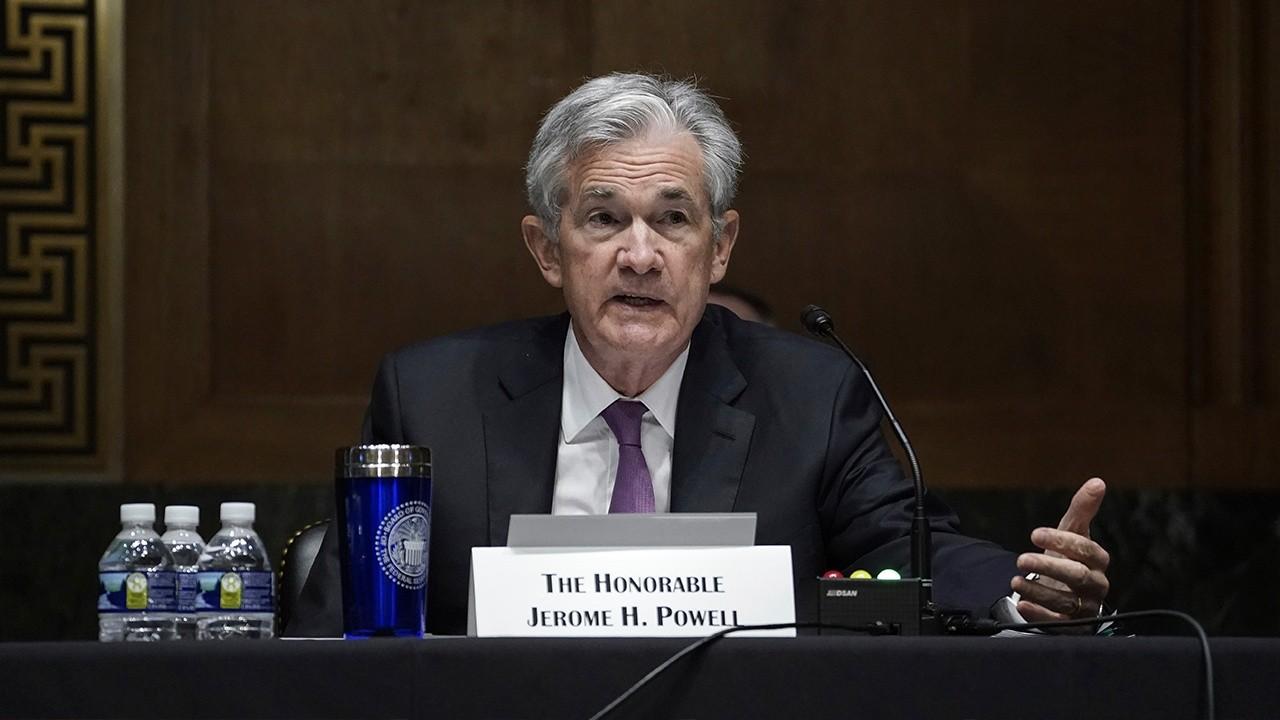Powell, warning of moderating economic recovery, says outlook is 'extraordinarily uncertain'
Federal Reserve chairman called COVID-19 surge 'concerning'
Federal Reserve Chairman Jerome Powell warned the pace of the U.S. economic recovery from the coronavirus pandemic has moderated in recent months and said the outlook remains "extraordinarily uncertain" amid a recent surge in infections across the country.
In congressional testimony that will be delivered on Tuesday, Powell called the rise in COVID-19 cases "concerning," and said it could "prove challenging for the next few months."
"As we have emphasized throughout the pandemic, the outlook for the economy is extraordinarily uncertain and will depend, in large part, on the success of efforts to keep the virus in check," Powell said in prepared remarks for the Senate Finance Committee, where he will testify alongside Treasury Secretary Steven Mnuchin as part of the panel's oversight responsibilities required under the $2.2 trillion relief package Congress passed in March.
US ECONOMIC GROWTH SHATTERS RECORD AT 33.1%, BUT FAILS TO SNAP CORONAVIRUS RECESSION
Powell said recent news of coronavirus vaccines are "very positive," but said he expects "significant challenges and uncertainties including timing, production and distribution, and efficacy across different groups."
"It remains difficult to assess the timing and scope of the economic implications of these developments with any degree of confidence," he said.
He reiterated that the U.S. central bank remains prepared to utilize all of its tools to prop up the economy. Over the past four months, the Fed slashed interest rates to near zero – where it has pledged to hold them for years to come – and injected nearly $2.8 trillion into the economy, an unprecedented amount. The Fed's balance sheet has surged to nearly $7 trillion.
FED HOLDS INTEREST RATES STEADY, SAYS US ECONOMY REMAINS 'WELL BELOW' PRE-PANDEMIC LEVEL
The testimony comes almost two weeks after Mnuchin announced that he would not extend several emergency loan programs set up with the Fed, prompting a rare criticism from the U.S. central bank, which will be forced to return nearly $455 billion in funding.
The lending facilities helped to unlock almost $2 trillion in funding, Powell said in his testimony. Still, the actual use of them was much smaller; the central bank deployed a little more than $100 billion through the programs, which provided financing to small- and medium-sized businesses, supported state and local governments and helped the corporate bond markets stay liquid.
“These programs serve as a backstop to key credit markets and have helped restore the flow of credit from private lenders through normal channels,” the Fed chief said. “We have deployed these lending powers to an unprecedented extent.”
The money is part of the $500 billion Treasury Department fund created at the end of March by the CARES Act. The Treasury Fund set aside $46 billion for loans and loan guarantees to the airline industry, and the remainder was designated to support Fed lending programs to businesses, states and municipalities.
GET FOX BUSINESS ON THE GO BY CLICKING HERE
Mnuchin is expected to move the $455 billion in unspent stimulus money into a fund that the incoming Biden administration cannot deploy without congressional approval. Shifting the money to the General Fund leaves just under $80 billion available in the Treasury’s Exchange Stabilization Fund.
In his own prepared remarks, Mnuchin said the $455 billion in funding would be better used for other purposes.
“Based on recent economic data, I continue to believe that a targeted fiscal package is the most appropriate federal response. I strongly encourage Congress to use the $455 billion in unused funds from the CARES Act to pass an additional bill with bipartisan support,” Mnuchin said. “The Administration is standing ready to support Congress in this effort to help American workers and small businesses that continue to struggle with the impact of COVID-19.”




















